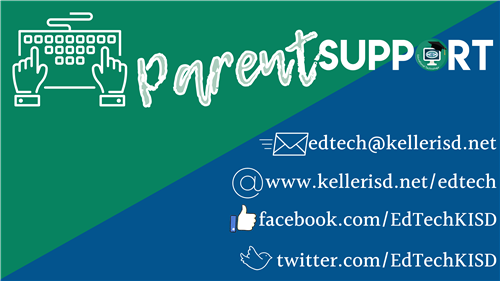-
Monitoring Online Students
During this time of new learning environments and schedules, it is important to establish routines. These routines are for your child, who will need to keep a schedule to stay on track with schoolwork, but also for you, as a way to ensure that you are aware of how your child is doing in school without adding too much extra time into your own schedule.
Here are some quick tips on how to keep track of how your student is doing:
- Log in to KCloud to see what work is upcoming in Backpack. This is your one-stop-shop for understanding what your child should be working on.
- You do not need to be an expert on every learning platform or technology application your students will be using. Teachers will be supporting students as they navigate the platforms, just as they would have been supporting students in the classroom. This handbook includes some basics on the platforms in case you would like to take a more in-depth look at what your child is working on.
- Don’t consider yourself to be a teacher. Keller ISD teachers are highly qualified to provide instruction for their grade level and content area. They are available to your child, even if they don’t see them on campus.
- Continue to support your student by encouraging them to stay on track with their homework, but also encouraging them to reach out to their teacher when they don’t understand something. In an online setting, teachers have more time to have conversations with each student to ensure they understand the content.
- The schedule this year allows for students to have time to step away from the computer. This handbook includes strategies for brain breaks and social-emotional exercises that can help prevent technology overload.
- Monitor your child’s grades in the district gradebook. When you have questions about grades, contact your child’s teacher.
- Communications in an online setting are the strongest indicator of success. Encourage your child to communicate with their teacher frequently and check their email daily. Help them to learn good communication skills. For example, many students will send emails that simply say “I don’t understand this”. This delays any real support because teachers won’t know what, specifically, they don’t understand. A well-worded email such as “When I was working on ______ assignment, I didn’t understand the part that said _______” is much more efficient and will result in a faster resolution.
- Help your child establish their own schedule for homework. Balancing schoolwork with quality time with family and friends is important.
Select a School...
Select a School
- Central HS
- Fossil Ridge HS
- Keller HS
- Timber Creek HS
- Keller Compass Center
- Keller Center for Advanced Learning
- Keller Collegiate Academy
- Fossil Hill MS
- Hillwood MS
- Indian Springs MS
- Keller MS
- Timberview MS
- Trinity Springs MS
- Vista Ridge MS
- Bear Creek IS
- Parkwood Hill IS
- Trinity Meadows IS
- Basswood ES
- Bette Perot ES
- Bluebonnet ES
- Caprock ES
- Eagle Ridge ES
- ELC - North
- ELC - South
- Florence ES
- Freedom ES
- Friendship ES
- Heritage ES
- Hidden Lakes ES
- Independence ES
- Keller-Harvel ES
- Liberty ES
- Lone Star ES
- North Riverside ES
- Park Glen ES
- Parkview ES
- Ridgeview ES
- Shady Grove ES
- Sunset Valley ES
- Whitley Road ES
- Willis Lane ES
- Woodland Springs ES


